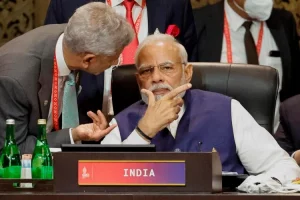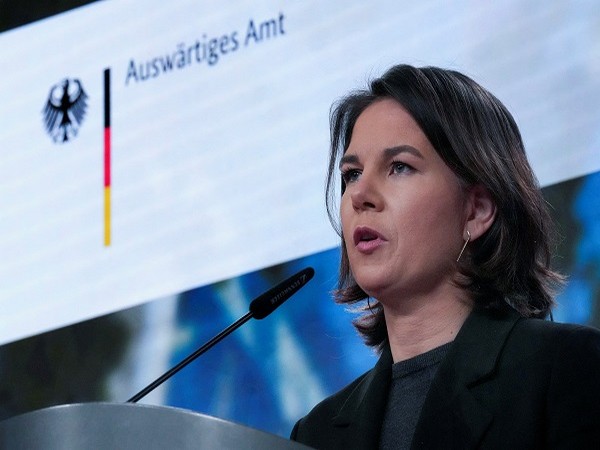BERLIN: Lauding the constructive role played by India at the recently concluded G20 summit in Bali, German Foreign Minister Annalena Baerbock has credited New Delhi for the clearer positioning of Group of Twenty (G20) on the ongoing war in Ukraine.
She made these remarks on Sunday ahead of her trip to New Delhi against the backdrop of the global consequences of the Russia-Ukraine conflict. During her visit, she will be discussing cooperation on the transition to renewable energy and India’s relationship with Russia and China.
“In the final month of Germany’s G7 presidency, I’m visiting India just days after it took over the G20 presidency. My talks will therefore also focus on the most urgent tasks of our time – containing the climate crisis and maintaining our rules-based international order.
 “At the G20 summit in Bali (Indonesia), India showed that it is ready to play its role globally,” the German foreign minister said in her departure statement. “The clearer positioning of the G20 against the Russian war of aggression in Ukraine is ultimately also thanks to India. “As an emerging economic power and a solid democracy, India is both a role model and a bridge for many countries in the world, despite all the internal social challenges. And a natural partner of Germany,” she added.
“At the G20 summit in Bali (Indonesia), India showed that it is ready to play its role globally,” the German foreign minister said in her departure statement. “The clearer positioning of the G20 against the Russian war of aggression in Ukraine is ultimately also thanks to India. “As an emerging economic power and a solid democracy, India is both a role model and a bridge for many countries in the world, despite all the internal social challenges. And a natural partner of Germany,” she added.
“Visiting India is like visiting a sixth of the world. As early as next year, India will overtake China as the most populous country in the world. There is no doubt that India will have a decisive influence on shaping the international order in the 21st century – in the Indo-Pacific and beyond. “And the fact that India has managed to lift more than 400 million people – almost as many as people in the EU – out of absolute poverty in the last 15 years, is impressive.”
“The Indian government has set itself ambitious goals not only in the G20 but also at home for its own people. “When it comes to expanding renewable energies, India wants to push ahead with the energy transition more than before. Germany stands by India’s side,” the German Minister said.
She said that Germany wants to strengthen economic, climate, and security policy cooperation with India beyond just a strategic partnership. “I will also sign a mobility agreement in New Delhi that will make it easier for our people to study, do research and work in each other’s country.” During the two-day inaugural visit, cooperation in the energy transition away from oil, coal and gas will also play a role.
On Friday, the German Federal Foreign Office said Baerbock will visit projects for renewable energies and sustainability in the rural surroundings of the capital New Delhi.
In Baerbock’s talks with her Indian counterpart External Affairs Minister S Jaishankar, India’s relationship with China is likely to be discussed in addition to the Russia-Ukraine war and its consequences. The minister will also visit the Election Commission of India, the German Foreign Office said.
Meetings are also planned with representatives of civil society and non-governmental organizations working for women’s rights. The spokesperson added that the minister will also participate in a trilateral India forum of the transatlantic foundation German Marshall Fund, which is about cooperation in the Indo- Pacific region.
The forum is an annual meeting of American, European and Indian experts from politics, think tanks and business at different locations. It has developed into a leading platform for transatlantic and European dialogue with India. India, the world’s largest democracy, took over the presidency of the G20 group of leading economic powers on December 1. (ANI)







